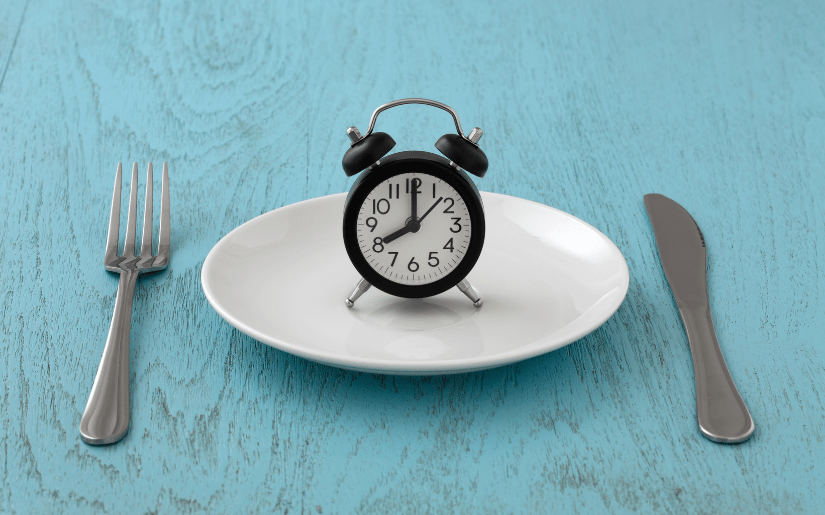Does the idea of a 3-day fast intrigue you? This new health and wellness strategy has become incredibly popular, but is it really beneficial or just another trend? It’s no surprise that you’re skeptical… after all, wellness advice is, quite literally, everywhere.
Fasting has been popular throughout history for spiritual and religious reasons, but in recent years, it’s gained a lot of popularity with the health and wellness crowd, especially biohackers. And, you’ll be happy to know this trend has a lot of evidence to back up the benefits!
Studies show that a 3-day water fast triggers a host of beneficial events in the body, including rebalancing certain hormones, improving digestion, rebooting the immune system, killing cancerous, and pre-cancerous cells, and so much more.
Let’s take a deep dive into the benefits of fasting and explore how to do a 3-day fast safely and effectively.

Our Bodies Are Evolutionarily Programmed to Water Fast
Fasting is one of those health and wellness trends that comes and goes, but it turns out that the practice actually dates back to the first humans. In those times, food wasn’t always easy to obtain, so it was normal to fast for several days at a time.
Human bodies have developed a coping mechanism for times of extended fasting, called ketosis. Ketosis is part of your genetic makeup, and it allows your body to run on fat stores, rather than sugar and carbs. In those early times, humans regularly went without food and only drank water.
Of course, food is much easier to come by now, but the thing is, our bodies really haven’t changed since those ancient times. Many experts believe that our current eating patterns are contributing to the increased levels of chronic disease in our culture.

Why a 3-day fast?
So, why does it need to be a 3-day fast? Why not just one day or two days?
Well, many of us are familiar with short-term, or intermittent fasting, where you go without eating for 12-18 hours. This method has been shown to provide some health benefits, including weight management.
The thing is, fasting for less than 24-48 hours isn’t long enough to stimulate autophagy, which you’ll see as you continue reading this article, which is a key benefit of the 3-day fast. In fact, prolonged fasting for 72 hours is so beneficial, experts recommend doing it once or twice each year for improved overall health.

What are the health benefits of fasting for at least 72 hours?
So, we already learned that a 72-hour fast stimulates autophagy, but what is autophagy, exactly? Basically, autophagy is your body’s cellular recycling process.
During autophagy, the body breaks down damaged or dysfunctional cells and cellular components. The body then recycles any usable components into new cells, while damaged or dysfunctional components are removed by the immune system.
The process of autophagy prevents the accumulation of damaged cells in the body, which is one of the leading causes of cancer. Although the body is always in a state of autophagy, fasting speeds up and prolongs the process.
Fasting for more than 48 hours is required if you want to get the most health benefits of autophagy. Here’s a look at what those benefits might include.
Lower Risk of Chronic Disease
Studies show that prolonged fasting for at least 72 hours can lower your risk of developing many chronic diseases, including cancer, heart disease, diabetes, Alzheimer’s, and more. It may also diminish the side effects of chemo and suppress certain genes that help cancer cells to grow.
Beneficial Metabolic Effect Called Ketosis
Our bodies normally burn glucose (stored in the body as glycogen) for energy. During a 3-day fast, the body burns through its glycogen stores in the first 24 hours. After that, it begins to burn fat and protein for fuel.
After 48 hours, the body enters starvation mode and begins to conserve protein and burn mostly fat for energy. It turns stored fat into glucose and molecules called ketones, which it uses for energy. This fat-burning metabolic effect is called ketosis. Sustained ketosis is the main goal of following a ketogenic diet.
Improves Insulin and Leptin Sensitivity
Leptin and insulin are two hormones our body uses to regulate metabolism. Leptin helps the body feel full, so increased leptin sensitivity means the body can process hunger signals more efficiently.
Insulin helps the body store nutrients from the bloodstream. When you are more insulin sensitive, your body becomes more efficient at reducing blood sugar levels.
These combined effects can lower your risk of developing obesity and diabetes.
Physiological Processes Related to Growth Slow Down
Fasting causes a decrease in a hormone called “insulin-like growth factor 1” or IGF-1. High levels of this hormone are associated with an increased risk of chronic disease.
While fasting causes a decrease in insulin in leptin, it encourages the release of a fat-burning hormone called adiponectin. It also activates antioxidant and stress-resistant enzymes in response to the decrease in leptin and insulin.
These are some of the mechanisms by which fasting reduces the risk of chronic disease.
May Improve Memory and Mental Focus
Experts have mixed opinions about whether or not fasting can improve mental focus. Some say it’s an effective tool for improving cognition and mental clarity, while others say it has no effects. You may have to give it a try to see what effect it has on you.
Aids Detoxification
Fasting gives the kidneys a break so that they can detoxify the blood more efficiently. It also enhances the production, release, and activity of certain enzymes the body uses for detoxification. These enzymes also support liver health, which is one of the key organs used to detox the body.
Water Fasting Reboots the Entire Immune System
When your body enters a state of autophagy during a fast, inflammation is reduced throughout the body, which improves the function of your immune system. It also lowers your white blood cell count which triggers the immune system to produce new white blood cells, called lymphocytes, which are the key component of your immune system.
Who should not do a 3-day fast?
Before undertaking a 3-day fast, consult with your doctor to determine your suitability based on your health and medical history. For most adults, a 3-day fast is perfectly safe. Children under 18 should never fast.
However, if you are pregnant, breastfeeding, have diabetes or gout, are underweight, have an eating disorder, or on certain medications, you should not do a 3-day fast.
How to Do a 3-Day Fast
Set Yourself Up for Success with Proper Preparation and Planning
- In the days leading up to your fast, eat a low-carb/low-sugar diet to help your body make the switch to ketosis more quickly and easily.
- Eat smaller meals for several days before your fast to help your body get used to the idea of consuming less food.
- Reduce your dependency on stimulants like sugar, caffeine, alcohol, or cigarettes by cutting back gradually during the weeks leading up to your fast.
- Do not overeat before you start your fast. The more you eat, the longer it will take for your body to reach ketosis. Stick to a small, balanced dinner in the early evening and then begin fasting immediately after.
- Always talk to your doctor first, especially if you have health issues or take medication.
The Fasting Period
- A true 3-day fast means that you consume nothing but water for 72 hours; no other drinks or food.
- If you work during the week, start your fast on Friday and finish up on Sunday. So, eat your last meal on Thursday evening and break your fast on Sunday evening. This will allow you to rest and relax during the weekend when you might not be feeling the greatest. It will also make it easier for you to avoid the temptation of being around other people eating food.
- Plan out your fast so that you have a full 72 hours between your last and first bite of food.
- Clear your schedule so you can rest and avoid stress
- You may notice periods of weakness and exhaustion, followed by bursts of energy.
Breaking Your Fast
- Always break your fast with a light meal or snack. For example, you might have some bone broth and a small salad or some avocado.
- Your first meal should be low on the glycemic index.
- Avoid carbs and sugar, which may cause you to regain any weight you’ve lost and take you out of ketosis.
- Avoid caffeine, alcohol, and heavy meals for at least three days after your fast.
- It’s important to know that the stomach produces less hydrochloric acid (HCI) when you are fasting since there’s no food to break down. You need to give your stomach time to adjust when you start eating again. If you rush the calories, fat, and acidic foods, it could lead to the overproduction of HCI and cause painful acid reflux.
What to Expect During a 3-Day Fast
The water fasting experience is different for everyone. For example, some people suffer from insomnia, while others sleep more soundly.
In general, you can probably expect day one of your fast to be the easiest day when it comes to food cravings. However, you may experience headaches and low energy levels on the first day, especially if you’re also dealing with caffeine withdrawal.
By day two, the hunger pangs will be more profound. You may also experience some brain fog and more pronounced ups and downs in your energy levels on the second day.
When you reach day three, you may notice that your body is less puffy, bloated, and inflamed. The hungry feeling may be gone, or it could be worse. Some people find the third day very difficult, with ravenous hunger and dramatic mood swings.
Tips for Getting Through a 3-Day Fast
- If this is your first time fasting, consider doing intermittent fasting, a 24-hour fast, or alternate-day fasting first to get your body used to the idea of food restriction.
- Don’t make it harder than it has to be! Avoid testing your willpower in social situations or places where you can’t avoid being around food. And, be careful about what you’re watching on TV, too.
- Fast with a friend for moral support.
- Drinks lots of water to help your stomach feel full.
- Stay busy! If you’re bored, you’ll want to eat.
- If you truly can’t resist the urge to chew on something, try some sugar-free gum.
- Embrace your hunger pangs and food cravings by reminding yourself why you decided to fast in the first place.
Side Effects of a 3-Day Fast
For healthy adults, the side effects of a 3-day fast are usually all positive. However, some people do notice a drop in blood pressure, called orthostatic hypotension. This causes a feeling of dizziness or lightheadedness if you stand up too fast. So, it’s important to take it easy when you’re fasting and don’t try to operate heavy machinery.

FAQs About How to Do a 3-Day Fast
Can you drink coffee during a 3-Day water fast?
There are mixed opinions on the subject of coffee during a 3-day fast. The purists say no, you should drink water only. If you drink coffee, your digestive system will get a break, but your liver will still be working hard, which means detoxification won’t be as effective.
Others say that drinking black coffee, herbal tea, bone broth, and lemon water with cayenne and sea salt can make the fast more bearable, and it’s much better than not fasting at all.
Some people advocate adding zero-calorie electrolyte powders to your water during a fast to alleviate dizziness.
Remember, consuming any calories, glucose, insulin, or protein during a fast will switch off autophagy.
Can you brush your teeth during a water fast?
Yes, you should brush your teeth as normal during a fast. The mouth has its own microbiome and bacteria will continue to build up on your teeth and in your mouth, even if you’re not eating.
Do you need salt or electrolytes during a water fast?
No, studies show that although sodium levels do drop during a fast, they stay in a safe range as long as you don’t fast for longer than 72 hours. However, if you’re suffering from constipation, dizziness, low blood pressure, nausea, or headaches during your fast, add a pinch of salt or calorie-free electrolyte powder to your water to counteract electrolyte loss.
If you want to do a longer fast, you will probably need to add some electrolytes and a multivitamin under a doctor’s supervision.
Should you be concerned about ketoacidosis during a 3-day fast?
Ketoacidosis is a very serious condition that happens when the body breaks down fat too quickly. It’s normally only a problem for people with Type-1 diabetes, but it can also be triggered by long periods of ketosis.
Ketoacidosis is not usually a concern during a three-day fast, but the risk does increase if you’re lactating, physically stressed from heavy exercise, or if you have extremely low body fat. Always check with your doctor before you start if you’re concerned.
Is refeeding syndrome a concern after a 3-day fast?
Refeeding syndrome is caused by an imbalance of electrolytes or fluids that occurs when nutrients are absorbed too quickly after a period of fasting. The condition is common among chronically undernourished people, who have low body weight or have suffered physical trauma such as a stroke or heart attack.
It’s very unlikely that a healthy individual undergoing a 3-day fast would experience refeeding syndrome, but it’s always best to reintroduce food slowly, just to be safe.
Is a 3-day fast a good way to lose weight?
You will almost certainly lose weight during a 3-day fast, but it will be mostly water weight. Fasting is not a good method for long-term weight loss because you will gain the weight back when you return to a normal diet.
For long-term weight loss, learn about intermittent fasting or check out Valter Longo’s fasting-mimicking diet.
Is it ok to exercise during a 3-day fast?
Why make the experience harder on yourself? Your body relies on your stored energy during a fast, and exercise will use up that energy. It’s better to conserve your energy and avoid any sort of high-intensity exercise.
However, a light walk, some gentle weight training, or yoga should be fine if you really need to move or you’re concerned about muscle loss.

